Filter by
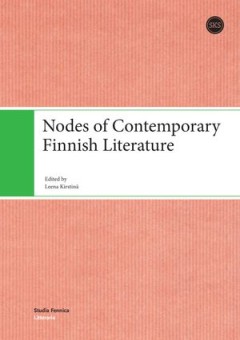
Nodes of Contemporary Finnish Literature
This book examines phenomena from Finnish and Finnish-Swedish literature written in the years between the 1980s and the first decade of the new millennium. Its objective is to study this interesting era of literary history in Finland and to sketch some possible directions for future development by identifying literary turning points which have already occurred.
- Edition
- -
- ISBN/ISSN
- 9789522223593
- Collation
- -
- Series Title
- Studia Fennica. Litteraria
- Call Number
- 800 NOD
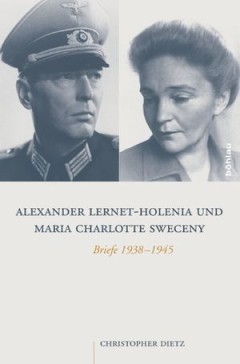
Alexander Lernet-Holenia und Maria Charlotte Sweceny : Briefe 1938-1945
In the centre of this study stand some 154 letters exchanged between the Austrian writer Alexander Lernet-Holenia (1897-1976) and Maria Charlotte ("Lotte") Sweceny (née Stein, 1904-1956), the co-proprietor of the Viennese publishing house Manz, between 1938 and 1945. The transcripts are followed by a commentary that aims to elucidate the historical, individual and geographical references. A me…
- Edition
- -
- ISBN/ISSN
- 9783205788874
- Collation
- -
- Series Title
- -
- Call Number
- 800 DIE a
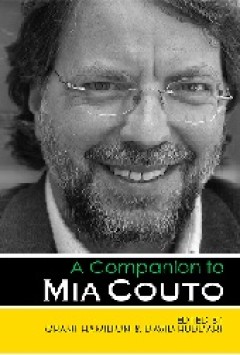
A Companion to Mia Couto
This new research in English on the work of the Mozambican writer Mia Couto provides a comprehensive introduction to the critical terrain of Couto's literary thought.
- Edition
- -
- ISBN/ISSN
- 9781782048213
- Collation
- -
- Series Title
- -
- Call Number
- -
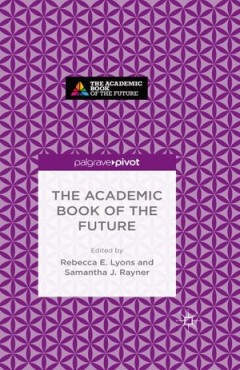
The Academic Book of the Future
This book is open access under a CC-BY licence. Part of the AHRC/British Library Academic Book of the Future Project, this book interrogates current and emerging contexts of academic books from the perspectives of thirteen expert voices from the connected communities of publishing, academia, libraries, and bookselling.
- Edition
- -
- ISBN/ISSN
- 9781137595775
- Collation
- -
- Series Title
- -
- Call Number
- 370 ACA
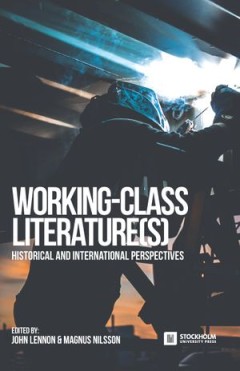
Working-Class Literature(s) : Historical and International Perspectives
"The aim of this collection is to make possible the forging of a more robust, politically useful, and theoretically elaborate understanding of working-class literature(s). These essays map a substantial terrain: the history of working-class literature(s) in Russia/The Soviet Union, The USA, Finland, Sweden, The UK, and Mexico. Together they give a complex and comparative – albeit far from com…
- Edition
- -
- ISBN/ISSN
- 9789176350515
- Collation
- -
- Series Title
- -
- Call Number
- 800 WOR
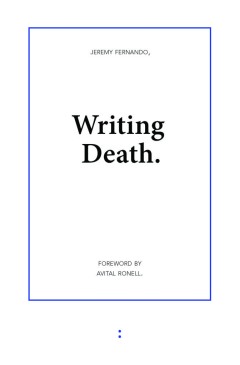
Writing Death
Writing Death opens a meditation on the possibility of mourning; of whether there is a subject, or even object, that one mourns—of whether one is mourning, can only mourn, the very impossibility of mourning itself. The manuscript is framed by two attempts at mourning—Avital Ronell’s “The Tactlessness of an Unending Fadeout” and Jeremy Fernando’s “adieu.” In-between—for this is…
- Edition
- -
- ISBN/ISSN
- 9789081709101
- Collation
- -
- Series Title
- -
- Call Number
- 080 FER w
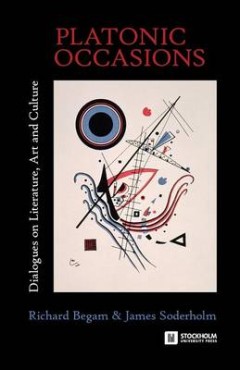
Platonic Occasions : Dialogues On Literature, Art and Culture
In Platonic Occasions, Richard Begam and James Soderholm reflect upon a wide range of thinkers, writers and ideas from Plato, Descartes and Nietzsche to Shakespeare, the Romantics and the Moderns—from Evil, Love and Death to Art, Memory and Mimesis. The dialogues suggest that Percy Shelley was right when he claimed “We are all Greeks,” and yet what have we learned about the initiatives of…
- Edition
- -
- ISBN/ISSN
- 9789176350003
- Collation
- -
- Series Title
- -
- Call Number
- 800 BEG p
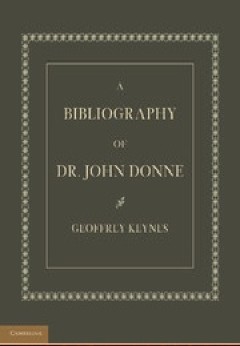
A Bibliography of Dr. John Donne
First published in 1958 as the third edition of a 1914 original, this book supplies a detailed bibliography of the poet and cleric John Donne. Keynes notes the various editions of Donne's prose and poetic writings, as well as books dedicated to him, his biography by Walton and books from Donne's own library, in addition to each text's location in libraries around the world. This book will be of…
- Edition
- -
- ISBN/ISSN
- 9781316530092
- Collation
- -
- Series Title
- -
- Call Number
- -
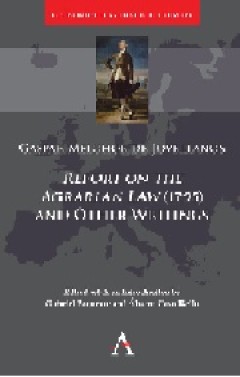
Report on the Agrarian Law' (1795) and Other Writings
Report on the Agrarian Law" (1795) and Other Writings is the first modern English translation of perhaps the greatest work of the Spanish Enlightenment, Gaspar Melchor de Jovellanos's 'Informe sobre la Ley Agraria' (1795). A major work of political economy and a beautifully crafted philosophical history of Spain’s political development until the eighteenth century, 'Informe sobre la Ley Agrar…
- Edition
- -
- ISBN/ISSN
- 9781783086306
- Collation
- -
- Series Title
- -
- Call Number
- -
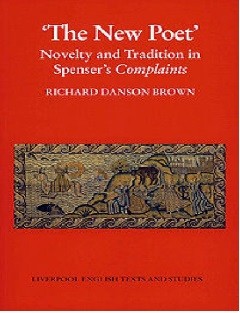
The New Poet': Novelty and Tradition in Spenser’s Complaints
This gracefully written and well thought-out study deals with a neglected collection of poems by Spenser, which was issued in 1591 at the height of his career. While there has been a good deal written in recent years on two of the poems in the collection, ‘Mother Hubberd’s Tale’ and ‘Muiopotmos’, Brown innovatively addresses the collection in its entirety. He urges us to see it as a p…
- Edition
- -
- ISBN/ISSN
- 9781781387795
- Collation
- -
- Series Title
- -
- Call Number
- -
 Computer Science, Information & General Works
Computer Science, Information & General Works  Philosophy & Psychology
Philosophy & Psychology  Religion
Religion  Social Sciences
Social Sciences  Language
Language  Pure Science
Pure Science  Applied Sciences
Applied Sciences  Art & Recreation
Art & Recreation  Literature
Literature  History & Geography
History & Geography